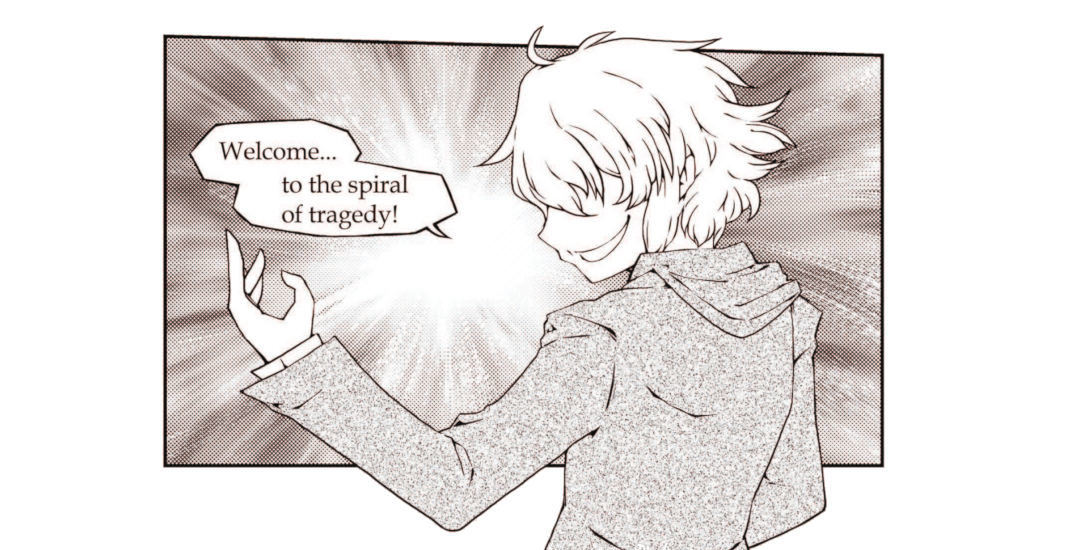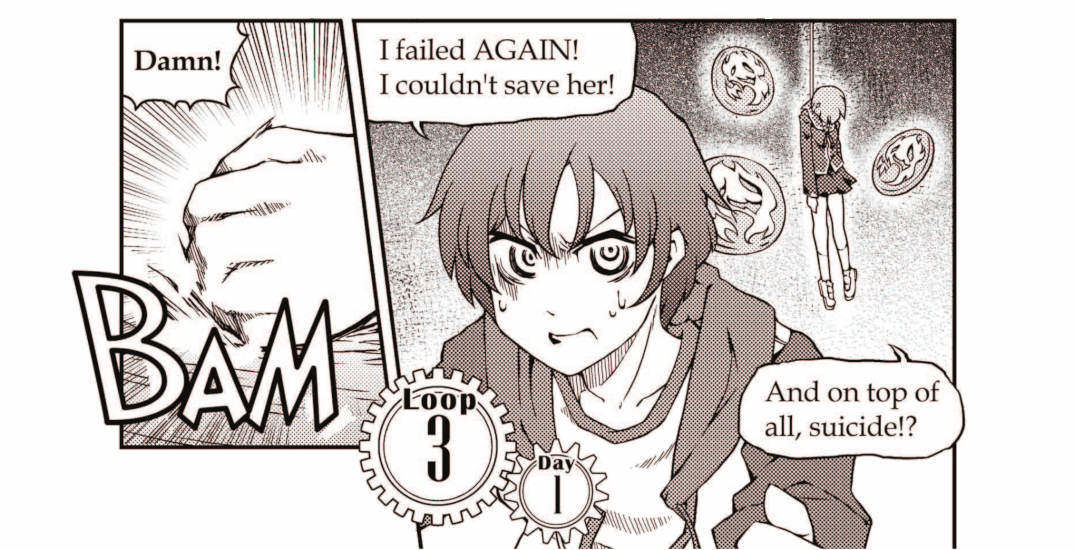
Like many deduction games, Tragedy Looper is enhanced by placing restrictions on communication. The manual recommends limiting the Protagonists’ ability to talk with each other to the small frame between time loops, forcing them to play without the full knowledge of each other’s actions.
This optional rule, thematically called the “Table Talk Off” setting, makes the already great Tragedy Looper even better. In this article, I’ll explain how it improves the player’s experience and why implement it in your game.
BLOCKING
The main reason to disable Table Talk is that it prevents the Protagonists from blocking all of the Mastermind’s moves. With perfect communication the Protagonists can coordinate to prevent plans from ever being put into motion, doing away with a good chunk of the game.
It’s surprising how far you get by being disruptive. Simply hitting characters with -1 Paranoia, Forbid Movement and Forbid Intrigue is enough to force the Mastermind’s hand, even if two of those cards are limited to just once per loop.

Not being able to communicate makes the Protagonists’ card play inefficient enough that they must know what they are blocking and why. It forces you to prioritize acting on well-reasoned information rather than mere guessing. It’s perfectly valid for the Protagonists to prevent a Serial Killer from being alone with another person. It’s just not very interesting if they don’t even know there’s a murderer in play.
After all, both sides have the same number of actions but only the Mastermind needs to fulfill goals. If bluffing, manipulation and trickery are all rendered ineffective through card play, what’s their point? While card play is an interesting part of Tragedy Looper, it’s not the reason we play it. We shouldn’t let it take over the whole experience.
SPEED OF INFORMATION
Disallowing communication also discourages the Protagonists from making bold plays based on information they just learned about. Normally, the Mastermind will have several ways of forcing a game loss but if the right bluff gets called or doesn’t work out, it can be disastrous. Not being able to act immediately gives more room to the Mastermind to play without forceful, obvious play patterns.
This is most noticeable when the Protagonists recognize a potential game-losing play. If they coordinate immediately to stop it and it’s a bluff, they screw up. But if they act immediately and it’s a real plan, the Mastermind is in deep trouble. This is a very binary situation that is not the game at its most fun. It’s more interesting if things unfold in a less explosive manner.

Since stopping a plan requires all players knowing what the plan is and acting accordingly, limiting communication forces the Protagonists to focus more on obtaining information and less on trying to force the game through cardeplay. This means the game returns to what’s most interesting about it: The Mastermind making plans and the Protagonists trying to understand what’s going on.
Again, this moves the game from being overly focused on card play to being focused on deduction, planning and understanding. It makes Tragedy Looper flow in a more natural manner. Games become more skill-based, mysterious and tense.
EASY LOOPS
No communication between loops seems like a big ordeal at first. Most people are used to being able to talk freely and Tragedy Looper can be a difficult game to wrap your mind around. But it’s not actually much more difficult than being able to speak normally.
After all, you don’t need to coordinate every single move. The game is not balanced under that assumption. Rather, the game is focused on uncovering information and some of the most interesting plays don’t even require blocking at all, but actively aiding the Mastermind. I’ve found not being able to communicate makes players pay more attention and be more focused on learning the identities of each character.

It doesn’t take long, either. Once you know how to play, loops go fast and there are always enough of them to be able to discuss things through with your partners. It seems like talking only between loops would be a long time with no communication, but it only seems so because we are used to talking things through at every possible opportunity, even when we don’t have a good reason to.
Truth to be told, the game was designed and balanced without communication in mind. Allowing communication between loops is just a way to help people understand the game a bit better. It’s a learning crutch, not a feature of design, and worsens the game significantly.
Don’t forget that the Protagonists win if they can guess all character roles. Many scenarios are balanced around the Final Guess and are more easily won this way than by preventing the tragedy. It can be tempting to make things easier for the Protagonists when they already have it easier, be it by the script or the nature of their roles. Tragedy Looper is more fun when it’s a match of wits against a cunning Mastermind.
I feel limited communication should be introduced as early as players feel comfortable with it. Certainly, it should be applied by the 5th script, which is where the game starts to get serious. In fact, the game notes it should be applied by the 6th. Not doing so will have a serious impact on the quality of those matches. Don’t be afraid to set Table Talk to off. It seems scarier than it actually is and will make an already great game much more interesting.



